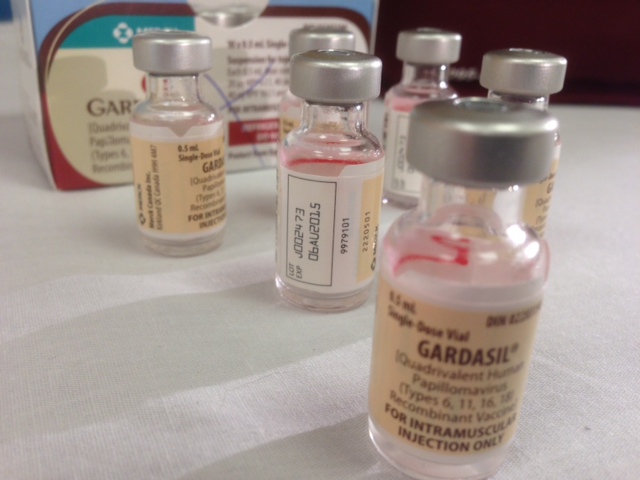HALIFAX – Teenage girls in Nova Scotia could help contribute to a better national understanding of the HPV vaccine.

HPV, human papillomavirus, is a common sexually transmitted infection that can cause cervical cancer.
In Nova Scotia, girls are immunized against the virus by getting three doses of the vaccine.
But now researchers are the Canadian Centre for Vaccinology, CCFV, are investigating whether two or three doses is more effective in fighting off the disease.
“When the vaccine was coming to market, it suggested when you give this vaccine to young girls, you get really great responses, immune responses. You probably don’t need all three doses to get protection from HPV,” said Dr. Shelly McNeil, an infectious disease specialist at the CCFV and professor at the Dalhousie Medical School.
McNeil is heading up the QUEST study in Eastern Canada, which only includes Nova Scotia and PEI.
The project is aiming to enroll 1,500 teens from the Maritimes. Researchers will then follow them for 10 years to see how effective or not effective their two or three doses of the HPV virus are.
“They’re going to collect information about their sexual history. Their Pap tests, verbally in a questionnaire. They’re going to collect a swab to see if they’re infected with HPV that should have been prevented by the vaccine. That way we can compare the three doses to the two doses to see if both work equally well,” she said.
- 3 women diagnosed with HIV after ‘vampire facials’ at unlicensed U.S. spa
- N.S. mom calls for better ultrasound access after private clinic reveals twins
- B.C. to ban drug use in all public places in major overhaul of decriminalization
- Solar eclipse eye damage: More than 160 cases reported in Ontario, Quebec
Deputy Chief Medical Officer of Health Dr. Frank Atherton said that in Nova Scotia about 90 per cent of girls receive the first dose of the HPV vaccine, however that number falls after that.
“We see a little bit of a drop off by the time the girls have the third dose, about 75 per cent of girls have that third dose,” he said.
Atherton said inconvenience seems to be the main reason for the decrease in vaccination.
“If there was a two dose regime, if that was just as effective as a three dose regime then there would be some benefit to girls that they wouldn’t have to have the three injections,” he said.
Jennifer O’Keefe, 18, is participating in the study. The Dalhousie student got two doses of the vaccine, one in 2008 and 2012 when she was in grade seven and grade nine, respectively.
“It was probably more for a preventative measure at the time,” she said.
“The vaccine was still new but there was no real risk involved with is so we were like, ‘oh why not?’.”
O’Keefe said she signed up for the study to help researchers learn more about the potential fatal disease.
“It is a big threat towards human health. It is important for us to find new ways to prevent that. I think it’s really important for us to pay attention to scientific research.”
McNeil said the study is important because it could free up more vaccines to be available to the general public and could be a cost-saving measure.
She cites previous studies have looked at the antibody levels in girls but this national study will examine whether disease is better prevented with two or three doses of the vaccine.
McNeil said data collected will be presented to the National Advisory Committee on Immunization, which may then make recommendations to the Public Health Agency of Canada.




Comments